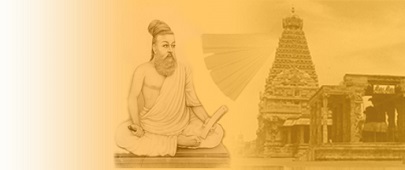Tamilology:
This term, in a liberal sense, denotes research-oriented Tamil Studies by any
organization or individual researcher or school of scholars. In a defined sense, this term will
denote the special branch of research study of estimating the contributions to Tamil language,
literature and lifestyles of the native Tamil people by such individuals, organizations etc. And
here, the term “lifestyles” is a vast spectrum, encompassing in it, all the day-to-day activities
of the native Tamil people, as could be gleaned from their indigenous literature of
all kinds viz. grammatical, lexical, epical, lyrical, theological, medical, philosophical, moral,
jurisprudence and folks literature, containing data about Tamil language and literature, various
rites and rituals, customs and manners, legends and fables, diseases and medicines, society and
culture, etc. from time immemorial till now. This is a research-oriented terminology, which has a
vast scope of multi disciplinary research avenues. That is, research avenues like for example,
international relations, indigenous Tamil society and cuture, ethno-medicine, tropical herbal study,
linguistics etc. will unfold themselves from this research umbrella.
German Tamilology:
As the sun’s white composite colour can be split into its
constituent seven colours, so also can German Indology be split into its constituent research
branches. The estimation of the contributions to various branches of Tamil Studies by Germans, is
German Tamilology. This research area was named by me when my doctoral thesis entitled: “GERMAN
TAMILOLOGY: German contributions to Tamil language, literature and culture during the period
1706-1945” was published. This will open a few other related new research avenues like German
Telugology, German Malayalamology, German Kannadology, German Sanskritology, German Devanagariology
etc. each of which will bring out German contributions to the respective indigenous linguistic areas
in India. That is, studies of Germans to Telugu language, literature and lifestyles of the
indigenous Telugu people will form German Telugology and likewise, the other branches.



